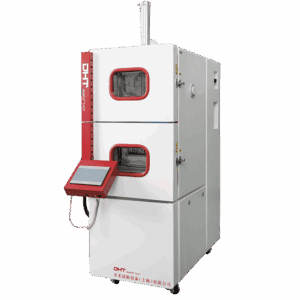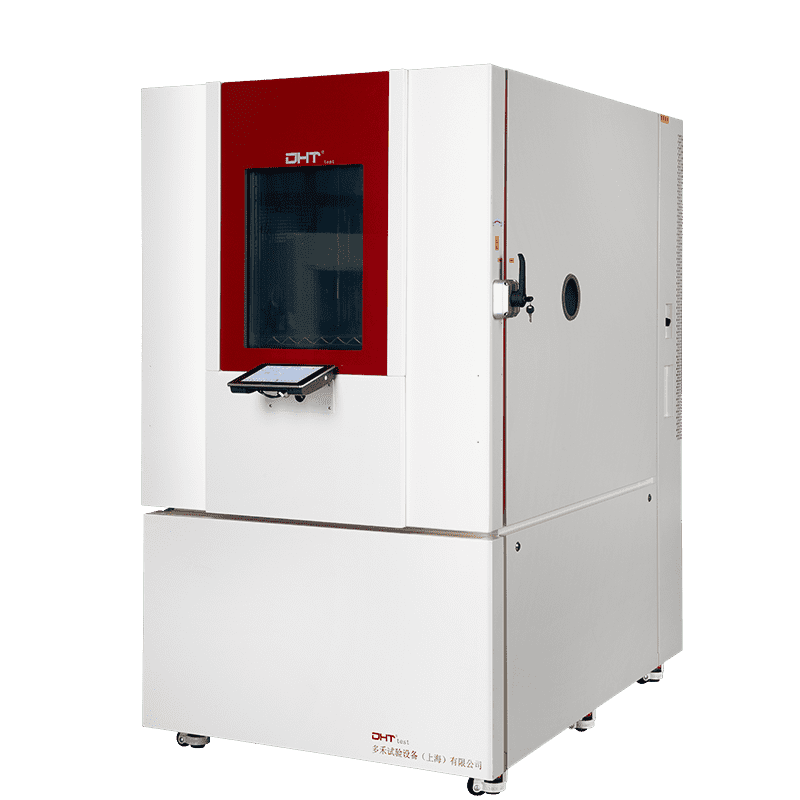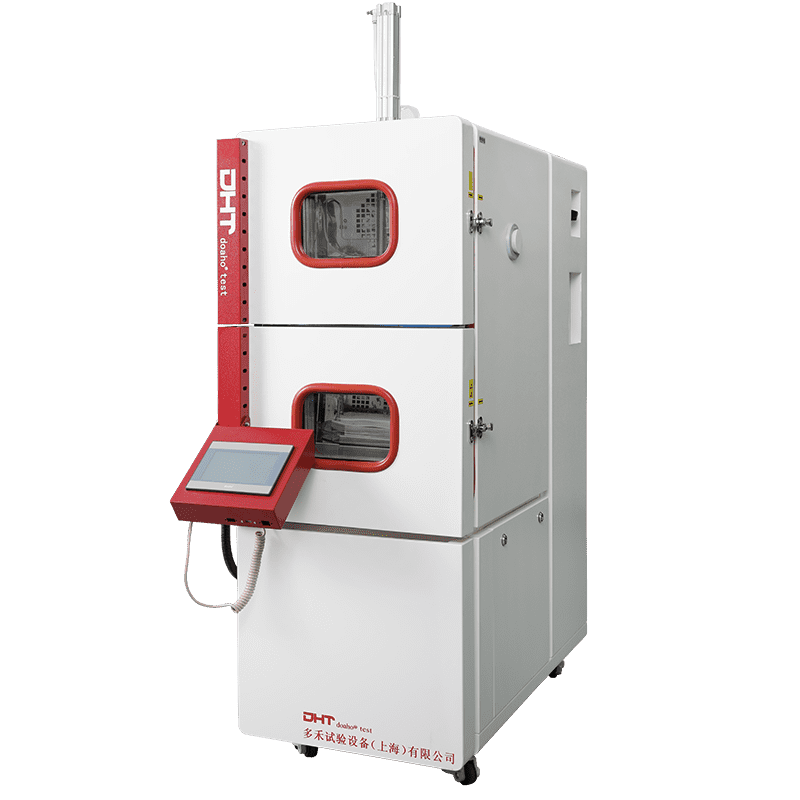Written by Dorothy
Senior Sales Manager, Doaho Test (DHT®)
As global manufacturing advances toward a new era of high reliability, robust performance, and unwavering stability, the thermal shock chamber has become an essential pillar of product verification systems. From aerospace and automotive electronics to semiconductor and new energy industries, companies increasingly prioritize rapid thermal stress screening for materials and components. By catching latent failures in the earliest stages of R&D, they can significantly reduce downstream risk and quality costs.
In 2025, with testing standards becoming stricter and technical expectations climbing ever higher, selecting a thermal shock chamber that delivers consistent performance, precise control, and proven technology is now top-of-mind for engineers and procurement professionals alike. In this article, we evaluate current global brands according to performance features, technological strength, and industry applicability—providing you with a trusted shortlist of thermal shock chamber brands and insights to inform smarter purchasing decisions.

Why Thermal Shock Testing Matters
Thermal shock testing simulates the effects of extreme temperature transitions, allowing engineers to evaluate how accelerated expansion and contraction may induce thermal fatigue in materials or assemblies. This testing plays a critical role in revealing potential failures such as solder joint cracks, seal degradation, material warping, and component malfunctions.
Thermal shock chamber testing is especially vital in scenarios like:
-
Automotive electronics – Evaluating ECUs, battery modules, and sensors under rapid temperature cycles.
-
Semiconductor packaging – Verifying chip encapsulation reliability against thermal stress.
-
Aerospace components – Ensuring structural and functional stability under harsh flight conditions.
-
High-end consumer electronics – Conducting ESS (Environmental Stress Screening) to filter defects before delivery.
Thus, what was once considered an optional accessory has become a core test device, directly affecting the quality and credibility of product validation.
Key Traits of Trustworthy Thermal Shock Chamber Brands
The global market for thermal shock chambers is highly competitive, with brands differentiating via technical innovation and support services. Based on user feedback and industry trends, these are the essential factors for evaluating brand reliability:
-
Temperature ramp rate and transfer speed – Speed and precision during hot‑cold transitions are key performance indicators.
-
Uniformity and control accuracy – Consistent temperatures across the chamber are vital for reproducibility.
-
Structural design and energy efficiency – Options like dual‑zone versus triple‑zone configurations and power-saving capability matter.
-
Compliance with international standards – Adherence to MIL‑STD, IEC, GB, or other standards ensures regulatory relevance.
-
After-sales service and global support – Rapid maintenance support and technical backing are critical for multinational users.
-
Industry reputation and case studies – Proven use in aerospace, automotive, and energy sectors validates real-world capability.
Based on these criteria, the following brands remain top contenders in 2025 procurement decisions.
Recommended Brands (in Alphabetical Order)
-
ESPEC (Japan)
A globally trusted environmental test equipment leader, ESPEC offers thermal shock chambers with dual‑zone or triple‑zone designs. Known for fast temperature transition, compact layouts, remote control options, and data logging capabilities—a mainstay in electronics, automotive, and semiconductor labs.
-
Thermotron (USA)
Renowned for exceptional test stability and intelligent control systems, even under heavy thermal loads. Thermotron chambers maintain excellent uniformity, support complex test sequences, and are widely adopted across North American R&D and ESS environments.
-
Weiss Technik (Germany)
Weiss Technik blends German industrial design with flexible configurations and high reliability. Their thermal shock chambers excel in aerospace and defense validation areas, featuring energy‑efficient design and advanced thermal exchange technologies.

DHT® has rapidly established itself on the global stage with its next‑generation thermal shock chamber offerings. Engineered for fast temperature switching, exceptional stability, and consistent performance, DHT® emphasizes user experience through customizable solutions, remote monitoring, and full life‑cycle support. By 2025, DHT® chambers are already used extensively in automotive battery testing, LED packaging evaluation, wearable electronics, military products, and more—demonstrating remarkable adaptability and market competitiveness that position DHT® as a standout emerging brand.
Purchasing Considerations: Avoid Hidden Pitfalls
When evaluating thermal shock chambers, be sure to look beyond brand and specs. These practical points can significantly impact long‑term satisfaction:
-
Facility layout and floor space limitations – Ensure the chamber fits within site constraints and allows for maintenance access.
-
Load configuration and sample types – Verify capability for various sample sizes, weights, and test fixtures.
-
Cooling configuration – Select between air‑cooled and water‑cooled systems based on energy use and site availability.
-
Control system & interface integration – Remote programming, data logging, MES connectivity, and automation support matter.
-
Maintenance ease – Look for modular design with readily available components, accessible alarms, and intuitive diagnostics.
Consultation with vendors and sample verification testing are essential to confirm that the selected chamber can accommodate all expected use cases and future needs.
Conclusion: Advancing Through Thermal Stress Testing
In 2025, thermal shock testing has moved beyond niche applications to become a central measure of reliability for quality‑driven organizations. Choosing the right thermal shock chamber impacts not just test precision and efficiency, but also overall product trustworthiness and market competitiveness.
DHT® stays committed to its mission of “making environmental testing more reliable and intelligent.” Their chambers—backed by strong R&D, modular configuration options, remote monitoring, and global support—offer excellent value and long-term service assurance.
If you’re searching for a high‑performance thermal shock chamber with proven reliability, consider evaluating DHT®’s offerings. Contact our expert team today to explore tailored solutions, technical documentation, and successful industry applications—we are ready to support your journey toward elevated testing standards and product excellence.
People also ask
What is a thermal shock chamber and what is its primary function?
A thermal shock chamber is a test device designed to evaluate how products withstand rapid transitions between extreme temperatures. It simulates thermal stress conditions to detect early-stage issues such as solder joint cracking, seal failure, material warping, and electronic malfunctions. These chambers are widely used in automotive electronics, semiconductors, aerospace, and other critical industries.
What key performance criteria should be considered when selecting a thermal shock chamber?
Important factors include temperature ramp rate and transfer speed, control accuracy and uniformity, structural configuration (e.g., two-zone or three-zone design), energy efficiency, compliance with international standards (e.g., MIL-STD, IEC, GB), and the availability of after-sales service and technical support.
In which industries are DHT® thermal shock chambers commonly used?
DHT® thermal shock chambers are widely adopted in electric vehicle battery testing, LED packaging, wearable electronics, and defense applications. With fast switching capability, stable performance, and remote monitoring features, they have become a trusted validation tool for high-end manufacturing sectors.


